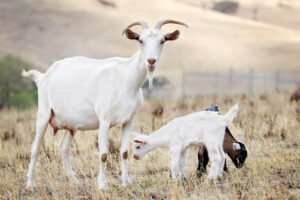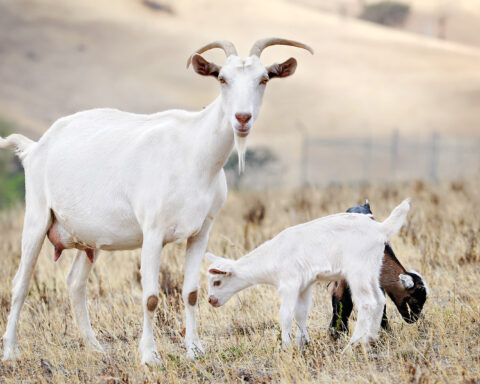It’s said that a dog is a man’s best friend. And for many people, that’s certainly true. Dogs are loyal, loving, and always happy to see their human companions. They make great pets and can provide years of happiness and companionship. But before you run out to the nearest shelter or pet store and adopt your very own furry friend, there are some things you need to know. This article will discuss how to pick and care for a dog so that you and your new pup can enjoy a long and happy life together.

1. Adopt From a Reputable Shelter or Breeder
When bringing your furry friend home, do so from a reputable source. Animal shelters look for loving homes to adopt dogs, often offering discounted rates for spaying/neutering, vaccinations, and microchipping. Some breeders give free puppies to good homes. Avoid pet stores or online sellers that sell puppies, as they often come from puppy mills, where dogs are kept in inhumane conditions and constantly bred for profit.
If you’re looking to buy a specific breed, ensure the breeder is reputable. Reputable breeders will have the health of their animals as a top priority and will be able to provide documentation of that. Avoid backyard breeders or puppy mills where dogs are kept in poor conditions and may have genetic health issues.
2. Consider Your Lifestyle and Living Situation
When picking a dog, one of the most important things to consider is your lifestyle and living situation. Do you live in a small apartment or a large house? Are you an active person who likes to go on long walks or hikes, or do you prefer to stay home and relax? Do you have young children who will want to play with the dog? These factors should be considered when choosing the right pup for your family.
If you live in a small apartment, it’s probably not wise to get a large dog that will take up too much space. A smaller breed like a Yorkie or Maltese may better suit your lifestyle. If you’re an active person, however, you may want to consider getting a Labrador Retriever or German Shepherd Dog, both of which are very active and playful. And if you have young children, it’s vital to get a dog that is kid-friendly and good with other animals. Breeds like Golden Retrievers and Bichon Frises are typically good with kids and other pets.
3. Consider Your Financial Situation
Another vital factor to consider before getting a dog is your financial situation. Dogs require regular vet check-ups, vaccinations, and possibly even surgeries or other medical treatments throughout their lifetime. They also need food, toys, and grooming supplies. Be sure you can afford the cost of caring for a dog before bringing one into your home.
Of course, not everyone can afford to own a dog, no matter how much they may want one. If that’s the case for you, consider volunteering at a local animal shelter instead. Spending time around dogs (and other animals) can be just as fulfilling as owning one yourself.
4. Think About Any Potential Allergies
People who are thinking about getting a dog should take into account any potential allergies they might have. Dogs can cause a lot of allergic reactions, from mild to life-threatening. So it’s important to know what you’re getting into before you bring a furry friend home.
Three types of allergens come from dogs: dander, saliva, and urine. Dander is the dead skin cells that flake off the dog’s coat. Saliva is the protein in the saliva that people are allergic to. And urine contains ammonia, which can also be an allergen.
People with allergies can still live with dogs, but it’s important to research breeds with less dander and saliva. Low-shedding breeds like poodles, schnauzers, and bichon frises are good choices. It’s also important to groom your dog regularly and keep the living space clean to minimize allergens in the air.
5. Choose a Breed That Fits Your Lifestyle
Once you’ve considered any potential allergies and researched low-allergen breeds, it’s time to consider what kind of lifestyle you have and choose a breed that will fit in well.
Are you an active individual who likes to go on long runs or hikes? Look into getting a breed like an Australian Labradoodle retriever or husky that will enjoy those activities with you. Do you have small children or elderly family members in your household? A gentle giant like a Great Dane might be better suited for that environment.

It would help if you also thought about the size of your living space and whether or not certain breeds will fit comfortably in it. Make sure to research the average size and exercise needs for any breed you’re considering.
6. Provide Proper Nutrition
Proper nutrition is essential for a dog’s overall health and well-being. Make sure to research what food is best for your dog’s age, size, and breed. And be sure to stick to a feeding schedule to check their digestion and weight.
It’s also essential to avoid giving your dog any human foods as they can often cause digestive issues or be toxic. Make sure to educate yourself on what human foods are safe for dogs and which ones to avoid, such as onions, grapes, chocolate, and xylitol.
7. Keep Up With Grooming
Regular grooming is crucial for maintaining the health of your dog’s coat, skin, nails, and teeth. Brush their fur regularly (more frequently for breeds with longer coats) to prevent mats and distribute natural oils in their coat. Also, ensure to trim their nails regularly and brush their teeth to prevent dental issues. And schedule regular baths as appropriate for your dog’s breed.
8. Schedule Regular Vet Visits
Like humans, preventive care is important for a dog’s health. Make sure to schedule regular checkups and vaccinations with the vet to catch any potential health issues early on. It’s also important to educate yourself on common illnesses and symptoms in dogs so that you can act quickly if necessary. Be prepared for emergencies by keeping a list of emergency vets in your area and having a pet first aid kit on hand.
Owning a dog is a big responsibility, but it can also bring immense joy to your life. By carefully considering any allergies and choosing a breed that fits your lifestyle, adopting from a reputable source, providing proper nutrition and grooming, and scheduling regular vet visits, you can ensure that your furry friend has a long and happy life by your side.










